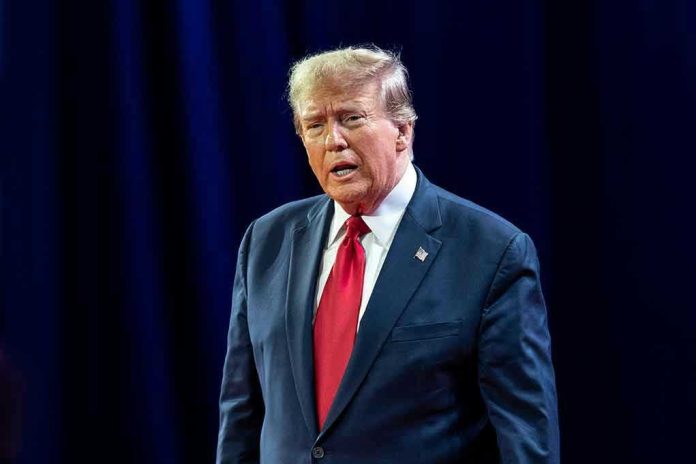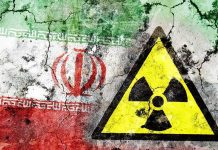
The Trump administration’s declaration of “armed conflict” with drug cartels marks a seismic shift in U.S. policy, raising questions about the future of counternarcotics efforts.
Story Snapshot
- The U.S. has declared an “armed conflict” with drug cartels, framing them as terrorist organizations.
- Recent U.S. military strikes targeted suspected drug trafficking routes near Venezuela.
- Congress received a confidential notification about the conflict, sparking legal and strategic debates.
- Tensions with Venezuela escalate as Maduro orders militias to prepare in response.
Trump Administration’s Policy Shift
The Trump administration’s notification to Congress represents a significant policy shift from traditional counternarcotics efforts to a military posture. By labeling drug cartels as terrorist organizations, the administration has effectively declared war on these non-state actors. This move follows U.S. military strikes on suspect drug boats off Venezuela’s coast, signaling a new approach to tackling the international drug trade.
These actions are part of a broader strategy to address the increasing militarization and transnational reach of drug cartels, which have challenged conventional law enforcement methods. The declaration of “armed conflict” raises questions about the implications for international law, regional stability, and domestic politics.
Geopolitical Tensions and Regional Risks
The involvement of Venezuela in this conflict adds a layer of complexity to the situation. Venezuelan President Nicolás Maduro has accused the U.S. of aggression and has ordered militias to prepare for potential military encounters. This development heightens the risk of direct confrontations between U.S. forces and Venezuelan elements, as well as cartels operating in the region.
Historically, Venezuela’s ongoing political and economic crisis has made it a significant transit point for drug trafficking, drawing attention from U.S. counternarcotics operations. The declaration of war on cartels further complicates U.S.-Venezuela relations, potentially destabilizing the region and affecting migration and governance.
Legal and Domestic Challenges
Congressional reaction has been swift, with key lawmakers questioning the legal basis for the administration’s actions. Senator Jack Reed, among others, has expressed concerns about the lack of clear legal justification for declaring an “armed conflict” with non-state actors like drug cartels. The notification to Congress has sparked a debate over executive authority and the role of the military in counternarcotics efforts.
This is what Trump's war on drug cartels looks like https://t.co/NQQQmk2IPw
— Sky News (@SkyNews) October 2, 2025
The Trump administration’s decision represents an unprecedented escalation in the fight against drug trafficking. While previous administrations have considered designating cartels as terrorist organizations, none have taken such decisive military action. This move sets a policy precedent that could redefine the scope of U.S. military involvement in counternarcotics operations.
Regional and Global Implications
The potential normalization of military action against criminal organizations poses broader implications for regional security and international law. As cartels adapt to increased military pressure, there is a risk of further militarization and diversification of their operations. This could lead to increased violence and humanitarian concerns in Latin America, with potential spillover effects on U.S. domestic policy.
The situation remains fluid, with ongoing U.S. military operations and Venezuelan preparations in response. The international community will be closely monitoring developments, as the U.S. seeks to balance its strategic objectives with regional stability and diplomatic relations.
Sources:
Trump says US is in ‘armed conflict’ with drug cartels after ordering strikes in the Caribbean



